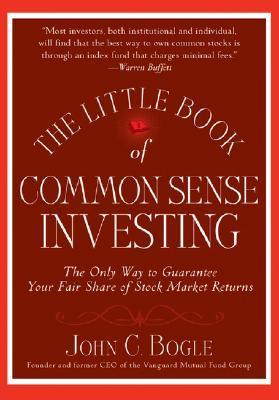The Little Book of Common Sense Investing

Investing is gambling, mostly. Sure there are troves of books suggesting strategies on how to pick the right stock and how to time your investments. But if you assume everyone in the market has access to the same information and whenever you buy or sell stock based on that information, someone else does the opposite thinking, like you, they will profit. Whether you make a profit that way comes down to dumb luck.
Yet, investing in shares seems the best way to save for retirement. Bogle’s approach is indeed a common-sense approach, one that doesn’t suggest questionable tactics but is based on hard numbers. It’s based on a few simple principles.
There’s no way you’ll beat the market, so don’t try. Unless you run your own investment business and have the time to track all news and trades related to your investment, there is a very low chance that you can outsmart everyone else in the market and always buy or sell at the right time. Invest in funds instead to diversify your portfolio and spread the risks, and to hover up any gains the overall market offers over time.
Keep your costs low. Costs, like interest, compound over time. The more you spend on management fees and trades and taxes when you sell, the less money remains in your portfolio. Choose index funds over managed funds.
Hold on to your shares. No matter what. Don’t succumb to short-term movements in the market. Don’t succumb to your emotions. Short-term losses are normal and share prices tend to increase over long-enough periods. So even if your portfolio drops in value, it’s very likely your portfolio value will increase in the long run.
Bogle proves all his points with numbers. He demonstrates that even professional managers of mutual funds have a hard time beating the market, that costs compound and how it affects the value of a portfolio.
The Little Book of Common Sense Investing is the first book on investing that made sense to me. The first where I didn’t find myself asking “But wait, what if…?” every other page. It doesn’t try to sell you with advice on timing investments or how to pick a unicorn company. It is common sense advice.
And as a side effect, Bogle’s approach seems almost hassle-free. You pick your funds, and you keep buying. And that’s it.
NOTE: None of the above is financial advice. If you have questions about investing and saving for retirement, you should consult an expert.